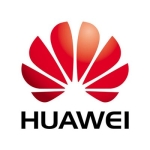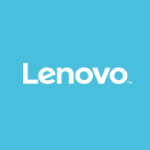What is our primary use case?
We primarily use Dell EMC Unity XT for SAN storage for ESX data stores. It has been performing okay. We have integrated it with VMware. We do have iSCSI LUNs for some Microsoft Windows servers as well, but not many.
How has it helped my organization?
It allows junior engineers to administer it a lot, so senior engineers, like myself, don't have to do hands-on stuff. It's less complex.
What is most valuable?
The most valuable feature is the interface. It is really usable, easy to manage.
Looking at that ease of management, for LUN creation, I like the integration into VirtualCenter. I used to have to add LUNs manually, then scan them in and format them. It does that all for you, all in one, immediate deployment of LUNs. Also, for replication, we use RecoverPoint. It's a little clunky but, overall, the Unity part of that product works in a very simplistic manner. It's easy to manage.
What needs improvement?
I would like better integration with RecoverPoint. My major issue with the solution, all around, has been RecoverPoint more than Unity. While I like the easy user interface, I would like some more advanced features for troubleshooting built into the product, so that we can do more in-depth problem-solving.
The issue we're having right now is that we can't really see much in the interface. Support can see more, but we can't see what's going on, so we have to rely on support to send us things. I would like something that a power user, an advanced user, a subject matter expert, could actually look at and say, "Okay, this is what's going on here," to make troubleshooting easier, instead of just the happy, bubbly alerts.
For how long have I used the solution?
What do I think about the stability of the solution?
Stability is the problem. We've had stability issues with it. We've had problems with the iSCSI interface. We've had it for two years now and for two years we've had problems where a service processor will drop, we'll lose connectivity to LUNs, we'll lose connectivity to the storage, issues like that. No matter how we've tried to chase it down, everybody just points fingers at each other. The only thing that changed in our environment was that the Unity solution was installed. It's the "least common factor."
What do I think about the scalability of the solution?
The scalability is great. If we need to expand, it's very easy to expand.
How are customer service and technical support?
Aside from the finger-pointing, they're generally pretty easy to work with. But in my opinion, it's hard to get up to higher levels of support. For a complex problem like we've had, it's been very difficult for us to get ahold of the right type of people. We almost need engineers or someone at a higher level. When you call in, you get the base-level people. What I always say whenever it comes to tech support is, if I'm calling you, it's not a problem that's easily solved. Because if it was easy, I would have fixed it myself. So getting to those higher levels of support has been very problematic for us. They just want to say, "It's not our issue," instead of someone actually tackling the problem.
Which solution did I use previously and why did I switch?
We had a VNX before and the one that we were using was starting to be phased out. We needed to keep on support and we need to stay with a solution, for our clients, that is newer and cutting edge. We were aimed towards Unity.
When selecting a vendor, the most important criterion is interoperability. It has to be able to integrate really well.
How was the initial setup?
Deployment was complicated when we did it initially and we still have problems with it. We had a VAR come out to do the initial install.
What was our ROI?
As far as cost is concerned, it does great deduplication. From a storage perspective, we save money being able to dedupe right on the disk. It's easy to manage, which saves us time. Overall, that time is money; it saves us money. It has a pretty good ROI.
What's my experience with pricing, setup cost, and licensing?
As far as simplicity of ownership goes, I don't think there is anything aside from the maintenance licensing.
Which other solutions did I evaluate?
We were aiming more towards Dell EMC because that's what we had previously.
What other advice do I have?
Test it really well first, and get somebody who knows what they're doing to set it up. The VAR that we were referred to was terrible. That was the root of a lot of our problems.
If we didn't have the problems that we had with it - all the problems that I highlighted above - it would be definitely a ten out of ten. But given those problems, and the fact that one of them has been going on for two years and we still don't have a solution, and the Unity is the only factor that changed in the environment...
Disclosure: My company does not have a business relationship with this vendor other than being a customer.










